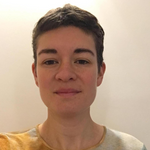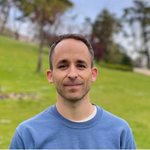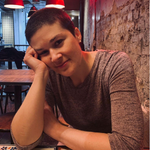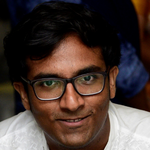Engenderings is a blog about the role of gender in cultural, social and political life. It brings together a broad range of perspectives to engage with ideas about gender as it operates in local and global culture and society. At the core of Engenderings is the idea that gender is everywhere and intersects with other analytical categories such as race, class, sexuality and disability, among others. It also shapes not only the way we move through the world – organising human bodies, sexualities, identities and the non-human – but also the way we relate to the world and to each other, in thought and in action, from political representation to cultural production.
The Engenderings blog is run by PhD students based at the LSE Department of Gender Studies, supported by the wider editorial collective. It is interdisciplinary in approach and subject matter, with material originating from a range of contexts, geographical location and fields including political science, sociology, cultural and media studies, literary criticism, arts, philosophy, environmental studies and technology, among others. Engenderings is committed to an open and critical engagement that is responsive to different points of view from within and outside academic spaces and welcomes pieces from students, activists, scholars and practitioners. As the editorial collective, we are interested in work that helps tackle social issues such as racism, homophobia, colonialism, militarised and extractivist forms of occupation, xenophobia, transphobia, ableism, and broader forms of intersectional inequalities. As such, we reserve the right not to publish work we find to be at odds with these commitments.
Each blog post gives the views of the individual author(s), and not the position of the Department of Gender Studies, nor of the LSE. All posts published on Engenderings remain the intellectual property and copyright of the author or authors, in respect to whom we operate with a strict duty of care. Anyone is free to link to or share links to posts published on Engenderings. Unless otherwise indicated, do not reproduce, republish or repost any blog posts elsewhere without permission from the author of the post. For repost requests, please contact the editorial collective and we will pass your request on to the author. We suggest that any reposts of original content published on Engenderings acknowledge and link back to Engenderings as the original site of publication, but this is at the author’s discretion.
Please note that comments are moderated in line with our editorial principles and in accordance with LSE blogs standard practice.
The Engenderings Editorial Collective:
 Alanah Mortlock is an ESRC funded Doctoral candidate at the London School of Economics, Department of Gender Studies. Her research looks at how academic and popular discourses of “transracialism” interact with theorisations of Blackness, engaging a critical lens invested in Black feminist and trans scholarships and politics. She is a member of the African-Caribbean Research Collective, and enjoys learning new languages, buying books, and knitting.
Alanah Mortlock is an ESRC funded Doctoral candidate at the London School of Economics, Department of Gender Studies. Her research looks at how academic and popular discourses of “transracialism” interact with theorisations of Blackness, engaging a critical lens invested in Black feminist and trans scholarships and politics. She is a member of the African-Caribbean Research Collective, and enjoys learning new languages, buying books, and knitting.
 Emily Cousens (they, she) is a queer, feminist philosopher whose research explores convergences between second wave feminism and transgender studies. They are currently working on a BA Funded Project: Second Wave Trans Feminisms in Print. Their next project, Anorexia and Trans, will explore shared subjectivities relating to these two forms of body dysmorphia from trans and feminist perspectives, and they would love to hear from anyone who is interested in this topic from personal experience. Emily has published her work in Angelaki and Social Sciences, and it is forthcoming in Gender & History. Their first monograph: Transfeminist epistemologies in the US Second Wave will be published by Palgrave in 2023.
Emily Cousens (they, she) is a queer, feminist philosopher whose research explores convergences between second wave feminism and transgender studies. They are currently working on a BA Funded Project: Second Wave Trans Feminisms in Print. Their next project, Anorexia and Trans, will explore shared subjectivities relating to these two forms of body dysmorphia from trans and feminist perspectives, and they would love to hear from anyone who is interested in this topic from personal experience. Emily has published her work in Angelaki and Social Sciences, and it is forthcoming in Gender & History. Their first monograph: Transfeminist epistemologies in the US Second Wave will be published by Palgrave in 2023.Lizzie Hobbs is a PhD candidate in the Department of Gender at the London School of Economics and is part of the GCRF Gender, Justice and Security Hub. Her research focuses on feminist readings of masculinities, discourse and processes of bordering. She questions the ways in which discourses on migrant masculinities are utilised to justify violent border regimes and anti-migrant politics. She works at Hackney Migrant Centre and several other organisations in the migrant rights sector in London. She can usually be found climbing walls, swimming laps, ranting or book buying.
Lucas (Luma) Mantilla (they/he/él/elle) is a PhD researcher at the Department of Gender Studies at LSE. Their research traces the contra-colonial epistemic registers of disidencias sexo-genéricas (sex-gender dissidents) in Ecuador and Abya Yala. They hold an MA in Social Policy from Sciences Po Paris. Their research interests include anticolonial resistance, homonormativity, academic extractivism, and neoliberal productivist ethics. Luma likes hiking, perreo, biking, vermuts en terrazas soleadas, and bear hugs.
 Marie Lunau is a PhD candidate at Roskilde University in Denmark and a visiting PhD fellow in the Department of Gender Studies at the London School of Economics. Her research focuses on queer migration in the context of Denmark. Through her doctoral research, she particularly questions the ways in which affective biopolitical notions of ‘truth’ determine the recognisability and inclusion of queer migrants. Her research interests include queer and feminist epistemologies, affect theory, decoloniality, critical race theory and migration.
Marie Lunau is a PhD candidate at Roskilde University in Denmark and a visiting PhD fellow in the Department of Gender Studies at the London School of Economics. Her research focuses on queer migration in the context of Denmark. Through her doctoral research, she particularly questions the ways in which affective biopolitical notions of ‘truth’ determine the recognisability and inclusion of queer migrants. Her research interests include queer and feminist epistemologies, affect theory, decoloniality, critical race theory and migration.
Niharika Pandit is a feminist theorist and educator interested in questions of gender, racialisation, post/coloniality, everyday politics of living and epistemic and political potentialities of theorising from the Global South. Insistently interdisciplinary, her research, writing and teaching draw on transnational, anticolonial and liberatory feminist thinking. She is Lecturer/Assistant Professor in Sociology at Queen Mary University of London, co-runs Insurgent Knowledges, and is working on her first book titled ‘On the Politics of Living: Gender, Coloniality and Occupation in Kashmir’. Niharika enjoys films, ghazals, and meditation.
 Nour Almazidi is a queer feminist PhD researcher at the LSE Department of Gender Studies. Her ethnographic and oral history research focuses on stateless subaltern politics and epistemologies. Nour holds an MSc in Gender from the LSE, a BA in International Relations and Political Science from University of Birmingham, and has previously worked as a Researcher at LSE Middle East Centre. She is interested in occultive practices, death studies, and film photography.
Nour Almazidi is a queer feminist PhD researcher at the LSE Department of Gender Studies. Her ethnographic and oral history research focuses on stateless subaltern politics and epistemologies. Nour holds an MSc in Gender from the LSE, a BA in International Relations and Political Science from University of Birmingham, and has previously worked as a Researcher at LSE Middle East Centre. She is interested in occultive practices, death studies, and film photography.
Nur El-Mahrakawy is a queer feminist activist and currently serves as the Communications Director at Ki Culture. Nur was awarded their MSc in Labour, Social Movements, and Development from SOAS in London and also holds a BA in Political Science from the American University in Cairo. Their research interests include social movement, post-colonial theories, and mobilization in the Middle East. They are a firm believer that stories have the power to lead the movement for progressive change.
Oksana Potapova From 2014 to 2020 Oksana worked with community theatre for the rights of internally displaced women in Ukraine through «Theatre for Dialogue» NGO. She combines her activism with research and advocacy for feminist peace and grassroots movement building in Ukraine. In 2021 she completed an MSc in Gender, Peace and Security at the London School of Economics, where she continues her journey as a PhD researcher. Since Russia’s full-scale invasion in 2022, Oksana’s research has been focused on intersectional gendered impacts of this war; emerging solidarities around new realities of peace and security in the region; and explorations of antimilitarist feminist frameworks through an embodied positionality as a Ukrainian activist and scholar.
Senel Wanniarachchi is a PhD Researcher at the Department of Gender Studies at the LSE. His research is interested in exploring and theorizing how imaginaries of history and culture are mobilized to legitimize nationalist, patriarchal and heteronormative frameworks in the postcolony. In Sri Lanka, Senel co-founded an organization called Hashtag Generation, which works in the intersections of human rights and technology.
 Tomás Ojeda is a queer, feminist researcher whose interests lie in the intersection of queer theory, psychosocial studies, Latin American sexual dissident critique and LGBTIQ+ mental health. He is an ESRC postdoctoral fellow based at the University of Brighton’s Centre for Transforming Sexuality and Gender, and is currently working on an edited volume on transnational anti-gender politics. He likes gardening and reading fiction, walking around and dancing.
Tomás Ojeda is a queer, feminist researcher whose interests lie in the intersection of queer theory, psychosocial studies, Latin American sexual dissident critique and LGBTIQ+ mental health. He is an ESRC postdoctoral fellow based at the University of Brighton’s Centre for Transforming Sexuality and Gender, and is currently working on an edited volume on transnational anti-gender politics. He likes gardening and reading fiction, walking around and dancing.
 Zuzana Dančíková is a PhD candidate at the Department of Gender Studies. She investigates how fathers’ leave policy in Slovakia changes the use of leave time by parents, focusing on the relationship of policy, behavior and attitudes. She holds an MSc in Public Policy and Administration from the LSE. Previously she worked as an analyst at the Ministry of Finance of the Slovak Republic and at Transparency International. She delights in books and walks.
Zuzana Dančíková is a PhD candidate at the Department of Gender Studies. She investigates how fathers’ leave policy in Slovakia changes the use of leave time by parents, focusing on the relationship of policy, behavior and attitudes. She holds an MSc in Public Policy and Administration from the LSE. Previously she worked as an analyst at the Ministry of Finance of the Slovak Republic and at Transparency International. She delights in books and walks.







